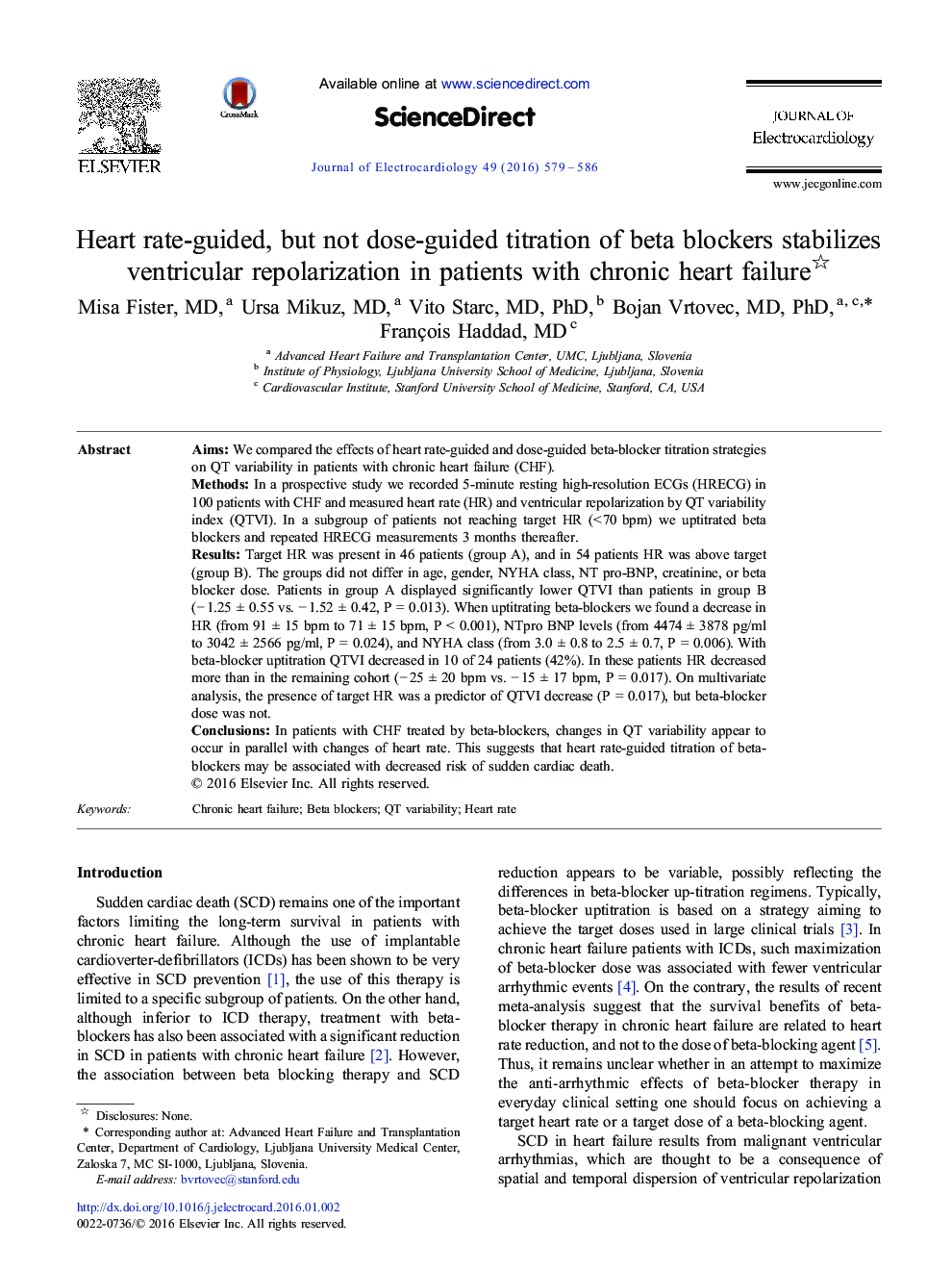| Article ID | Journal | Published Year | Pages | File Type |
|---|---|---|---|---|
| 5986148 | Journal of Electrocardiology | 2016 | 8 Pages |
â¢We studied chronic heart failure patients treated with beta-blockers.â¢The presence of target heart rate (< 70 bpm) is associated with stabilization of ventricular repolarization, measured by QT variability.â¢This effect is not dependent on beta-blocker dose or type.â¢Heart rate-guided titration of beta-blockers may be associated with stabilization of ventricular repolarization and decreased risk of sudden cardiac death.
AimsWe compared the effects of heart rate-guided and dose-guided beta-blocker titration strategies on QT variability in patients with chronic heart failure (CHF).MethodsIn a prospective study we recorded 5-minute resting high-resolution ECGs (HRECG) in 100 patients with CHF and measured heart rate (HR) and ventricular repolarization by QT variability index (QTVI). In a subgroup of patients not reaching target HR (< 70 bpm) we uptitrated beta blockers and repeated HRECG measurements 3 months thereafter.ResultsTarget HR was present in 46 patients (group A), and in 54 patients HR was above target (group B). The groups did not differ in age, gender, NYHA class, NT pro-BNP, creatinine, or beta blocker dose. Patients in group A displayed significantly lower QTVI than patients in group B (â 1.25 ± 0.55 vs. â 1.52 ± 0.42, P = 0.013). When uptitrating beta-blockers we found a decrease in HR (from 91 ± 15 bpm to 71 ± 15 bpm, P < 0.001), NTpro BNP levels (from 4474 ± 3878 pg/ml to 3042 ± 2566 pg/ml, P = 0.024), and NYHA class (from 3.0 ± 0.8 to 2.5 ± 0.7, P = 0.006). With beta-blocker uptitration QTVI decreased in 10 of 24 patients (42%). In these patients HR decreased more than in the remaining cohort (â 25 ± 20 bpm vs. â 15 ± 17 bpm, P = 0.017). On multivariate analysis, the presence of target HR was a predictor of QTVI decrease (P = 0.017), but beta-blocker dose was not.ConclusionsIn patients with CHF treated by beta-blockers, changes in QT variability appear to occur in parallel with changes of heart rate. This suggests that heart rate-guided titration of beta-blockers may be associated with decreased risk of sudden cardiac death.
